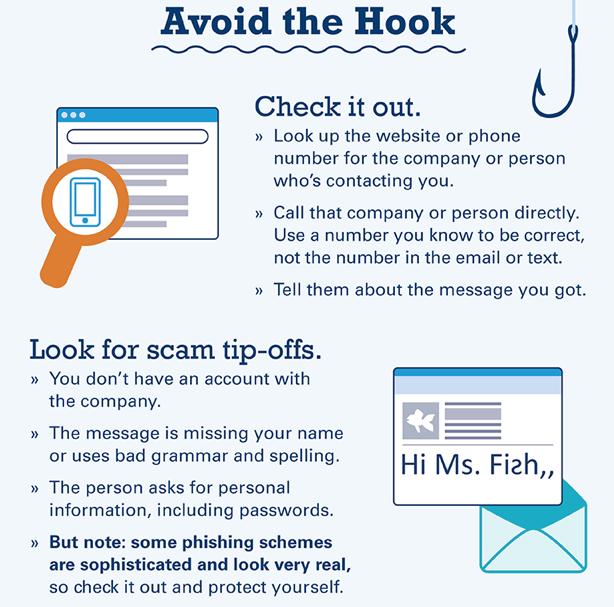By Colleen Tressler
Consumer Education Specialist
Federal Trade Commission
March 13, 2019 3:00 p.m.
Phishing is when someone uses fake emails or texts – even phone calls – to get you to share valuable personal information, like account numbers, Social Security numbers, or your login IDs and passwords. Scammers use this information to steal your money, your identity, or both. They may also try to get access to your computer or network. If you click on a link in one of these emails or texts, they can install ransomwareor other programsthat lock you out of your data and let them steal your personal information.

Scammers often use familiar company names or pretend to be someone you know. They pressure you to act now – or something bad will happen.
The FTC’s new infographic, developed with the American Bankers Association Foundation, offers tips to help you recognize the bait, avoid the hook, and report phishing scams.

Please share this information with your school or family, friends and co-workers. You can also test your knowledge by playing this al-luring game.
Want to avoid the latest rip-offs? Sign up for free consumer alerts from the FTC at ftc.gov/subscribe.
